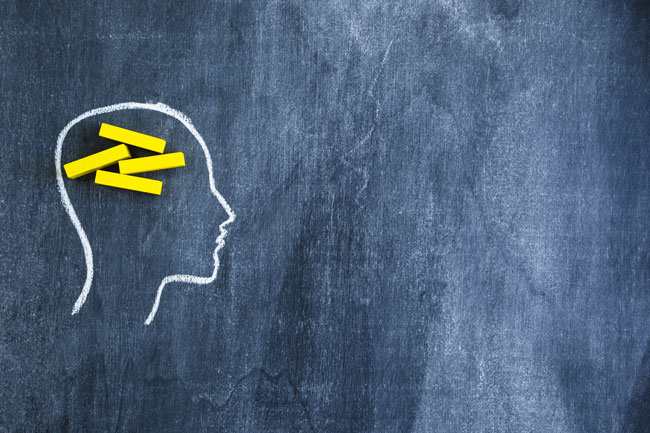It’s a question on the minds of millions of older Americans: Will I be diagnosed with dementia someday? Can anything be done to reduce the chance of cognitive decline as we age? Or are we at the mercy of the aging process?
The World Health Organization (WHO) tackled these questions in an exhaustive study. The findings are revealing, sometimes frustrating, and very important. Their answers will be of great interest to older people who wish to stave off the risks for dementia. It will also be helpful for everyone who loves and cares for them. The WHO asked this question: “For adults with normal cognition or mild cognitive impairment, are physical activity interventions more effective than usual care or no intervention in reducing the risk of cognitive decline and/or dementia?” It’s an important question — as the WHO reports that some 50 million people worldwide live with dementia.
A 2018 meeting of medical minds in Geneva identified seven key areas associated with slowing down or preventing memory and thinking tasks. Here are the highlights of the seven secrets to better brain health, as recapped in an article from Cognitive Vitality.
1. GET PHYSICAL
Almost everyone knows that staying active can lead to a healthier body. But it’s become increasingly clear that physical activity boosts brain health too. When we increase exercise, we also increase our odds of sidestepping cognitive challenges. We may even cut the risks of developing Alzheimer’s disease and other forms of dementia.
What to do? Every sort of physical activity counts, whether you think of it as exercise or not. This includes playing sports, working out, walking around the block, riding a bike — even scrubbing the kitchen tile. 65 or older? Go for a minimum of two-and one-half hours per week of moderate physical activity, or one-and one-quarter hours of more intense activity every week
2. BUTT OUT
We have known about the health-harming damage of smoking cigarettes on our physical bodies for decades. But did you know smokers are more likely to develop dementia than non-smokers and have a nearly 80 percent greater chance of developing Alzheimer’s disease?
3. EAT A BRAN-HEALTHY DIET
The same nutritious diet that leads to a healthy body can also build a happier brain. The WHO suggests that a Mediterranean diet might lower the chance for cognitive decline and dementia. In fact, an optimal diet may lead to increased brain volumes along with improved cognitive function.
There are other diets, of course, including the DASH diet designed to help with hypertension, and the MIND diet, developed to encourage better brain health. The WHO currently endorses neither of these diets, but they are worth considering. Interestingly, the WHO doesn’t suggest vitamins and other supplements unless someone is suffering from a nutritional deficiency.
4. TO DRINK OR NOT TO DRINK
While certain studies indicate that low-to-moderate alcohol consumption might contribute to a healthy brain, drinking too much has been linked to memory problems. The WHO believes stopping excess drinking may lower the risk of brain health issues.
If a senior has lost control of their drinking, consider an intervention. Options include behavioral therapy, counseling, and treatment with medication.
5. GOOD THINGS CAN HAPPEN WHEN YOU TRAIN YOUR BRAIN
Did you know that certain types of brain training can reduce the risk of developing dementia? A leading research and outreach group called Cognitive Vitality shared the results of a decade-long study testing the effectiveness of several cognitive training regimens. In particular, a technique named speed-of-processing cut dementia risk by nearly 30 percent.
While you may not be able to teach an old dog new tricks, older individuals often benefit from lifelong learning. The WHO suggests cognitive training to lower dementia risk.
6. GET SOCIAL
What do high blood pressure, heart disease, depression, and dementia have in common? Social isolation! Spending too much time alone and a lack of social engagement are connected to higher dementia risk. The WHO analyzed a trio of studies that looked at the relationship between social engagement and cognitive struggles. One study discovered that a social activity intervention boosted brain function.
Defeat senior loneliness and isolation with a more active social calendar. If necessary, stage a social intervention with your loved one.
7. DON’T WAIT TO LOSE WEIGHT
It’s common knowledge that being obese is connected to medical problems such as type 2 diabetes, heart disease, and cancer. Cognitive Vitality also reminds us that individuals who are significantly overweight have a higher risk for cognitive decline than those of us with appropriate body weight. Losing weight may enhance certain cognitive functions. The WHO recommends weight management interventions for people in middle age. Lifestyle adjustments that encompass diet and physical activity are believed to deliver the most positive outcomes.
So here are some bite-sized nuggets to keep handy, brought to you by the WHO and your friends at Cognitive Vitality: exercise, quit smoking, eat for your brain, mind your alcohol consumption, get enough sleep, alleviate stress, be social, keep learning, and watch your weight.
Amanda Butas is a Geriatric Case Manager at Home Care Assistance Mesa Office, located right next to Bed Bath and Beyond on Power and McKellips roads. Her company provides home care services on an hourly or around-the-clock basis to older adults who need help. Her services include support with basic activities of daily living and those living with certain conditions such as Alzheimer’s or Parkinson’s, as well as supporting a successful transition home from the hospital or a rehab facility. Amanda can be reached at her office at (480) 699-4899


